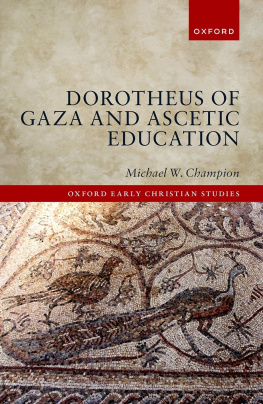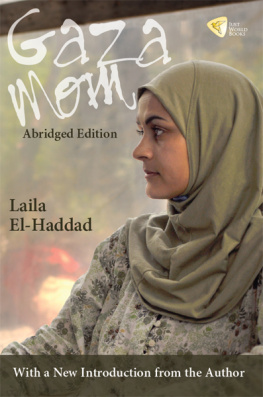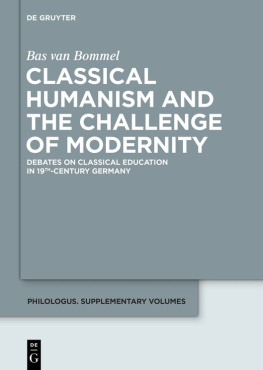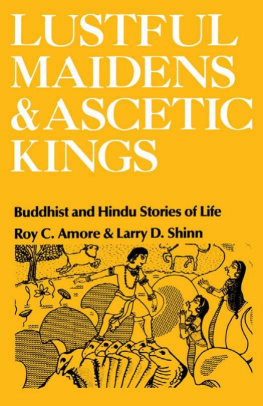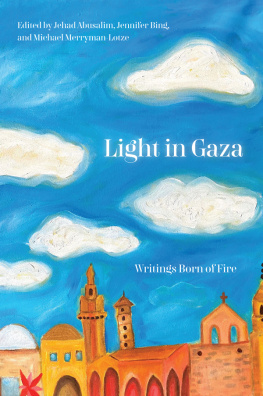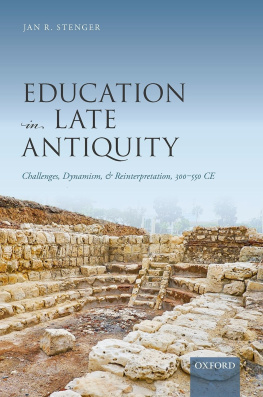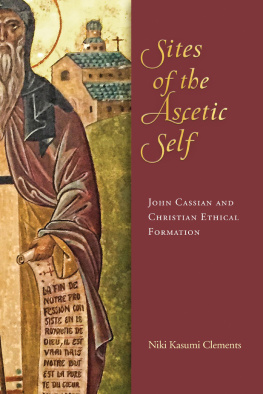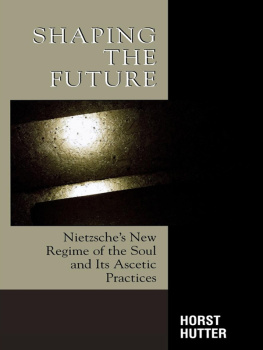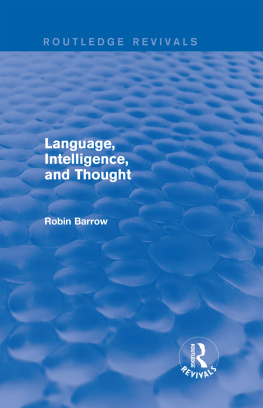The Oxford Early Christian Studies
Series includes scholarly volumes on the thought and history of the early Christian centuries. Covering a wide range of Greek, Latin, and Oriental sources, the books are of interest to theologians, ancient historians, and specialists in the classical and Jewish worlds.
titles in the series include:
The Minor Prophets as Christian Scripture in the Commentaries of Theodore of Mopsuestia and Cyril of Alexandria
Hauna T. Ondrey (2018)
Preaching Christology in the Roman Near EastA Study of Jacob of Serugh
Philip Michael Forness (2018)
God and Christ in Irenaeus
Anthony Briggman (2018)
Augustines Early Thought on the Redemptive Function of Divine Judgement
Bart van Egmond (2018)
The Idea of Nicaea in the Early Church Councils, ad 431451
Mark S. Smith (2018)
The Many Deaths of Peter and Paul
David L. Eastman (2019)
Visions and Faces of the Tragic
The Mimesis of Tragedy and the Folly of Salvation
in Early Christian Literature
Paul M. Blowers (2020)
Art, Craft, and Theology in Fourth-Century Christian Authors
Morwenna Ludlow (2020)
Nemesius of Emesa on Human Nature: A Cosmopolitan
Anthropology from Roman Syria
David Lloyd Dusenbury (2021)

Great Clarendon Street, Oxford, OX2 6DP, United Kingdom
Oxford University Press is a department of the University of Oxford. It furthers the Universitys objective of excellence in research, scholarship, and education by publishing worldwide. Oxford is a registered trade mark of Oxford University Press in the UK and in certain other countries
Michael W. Champion 2022
The moral rights of the author have been asserted
First Edition published in 2022
Impression: 1
All rights reserved. No part of this publication may be reproduced, stored in a retrieval system, or transmitted, in any form or by any means, without the prior permission in writing of Oxford University Press, or as expressly permitted by law, by licence or under terms agreed with the appropriate reprographics rights organization. Enquiries concerning reproduction outside the scope of the above should be sent to the Rights Department, Oxford University Press, at the address above
You must not circulate this work in any other form and you must impose this same condition on any acquirer
Published in the United States of America by Oxford University Press
198 Madison Avenue, New York, NY 10016, United States of America
British Library Cataloguing in Publication Data
Data available
Library of Congress Control Number: 2022930979
ISBN 9780198869269
ebook ISBN 9780192640352
DOI: 10.1093/oso/9780198869269.001.0001
Printed and bound in the UK by
Clays Ltd, Elcograf S.p.A.
Links to third party websites are provided by Oxford in good faith and for information only. Oxford disclaims any responsibility for the materials contained in any third party website referenced in this work.
Preface
This book had a long gestation period, conceptualized at the University of Western Australia, including on sabbatical at the University of Cambridge, and written in the Australian Catholic Universitys Institute for Religion and Critical Inquiry. UWA sabbatical funding also took me to Lund University, where I enjoyed the hospitality of Samuel Rubensons Monasticism and Classical Paideia research team at an engaging workshop. Discussions with colleagues at UWA about exemplarity, ancient education, emotions history, and late-antique and Byzantine history helped ideas to crystallize. I recall with gratitude stimulating conversations with friends and colleagues including Yasmin Haskell, John Melville-Jones, Lara OSullivan, Neil OSullivan, Kirk Essary, Andrew Lynch, Pip Maddern, and Anne Scott. Susan Broomhall invited me to present related research for UWAs Institute of Advanced Study and the Perth Medieval and Renaissance Group, an organization which models scholarly community.
The ARC Centre of Excellence for the History of Emotions funded a project on Dorotheus humanist reception and provided a vibrant research context. The ACU/Durham/Notre Dame Modes of Knowing team discussed many themes and read substantial drafts. I thank Lewis Ayres, Matt Crawford, Sarah Gador-Whyte, Michael Hanaghan, Jane Heath, Dawn LaValle Norman, Andrew Radde-Gallwitz, and Jonathan Zecher. I am especially indebted to Jonathan, whose knowledge of ascetica is exceptional. He read the whole and made numerous insightful suggestions. Jon Simons offered valuable research assistance while completing his PhD. Im fortunate to work with supportive colleagues in ACUs Biblical and Early Christian Studies team. I worked closely with David Runia in leading the Institute for Religion and Critical Inquiry, and I record my gratitude for Davids advice and friendship. Kylie Crabbes encouragement and advice has also been influential. I have benefited from feedback arising from presentations of early drafts around the world, and I warmly thank participants in these conferences and seminars. My PhD supervisor Judith Herrin asked whether Dorotheus was interested in education or in training, a question that kept worrying me as I thought about the contours of monastic pedagogy.
A recurring topic of conversation at home as I was growing up was how best to educate people. Education was placed at the heart of a range of cultural problems. My social worker mother and physics teacher father introduced me to theorists of culture and education like Jerome Bruner and Lev Vygotsky, whose ideas turned out to be fruitful in this project. They helped draw out how education can reinforce power structures and, if done well, strengthen social justice. Ideas like these are at the heart of thinking about how to conceptualize late-antique education, relate it to earlier educational practices from the classical world, and integrate it in narratives of late-antique cultural change. Family debates about education (and much else) continue, enriched too by the perspectives of my sister, a high school teacher, and my brother, a medievalist. I thank Gaye, Neil, Matthew, and Benita for their intellectual contributions and loving friendship. Other friends have offered ideas and encouragement at various stages. I thank especially Miranda, Callum, Martin, and Hilary. Samuel and Hugh have generously allowed me to hide away in the study with Dorotheus and they coped with lockdown home-schooling with independence, fortitude, and good humour. Sarah, my wife, has been a constant support and critic. She has debated, commented on, and improved the whole, and, in the difficult circumstances of the past two years, has enabled me to find the time to complete the project. I dedicate the book to her.
Melbourne
October 2021
Contents
Titles of ancient philosophical texts are abbreviated in accordance with the series The Ancient Commentators on Aristotle, edited by Richard Sorabji, for which see The Philosophy of the Commentators 200600 AD. Volume 1: Psychology (with Ethics and Religion). Ithaca, NY: Cornell University Press, 2005, 41516.
Titles of classical historical and literary texts are abbreviated in accordance with the

